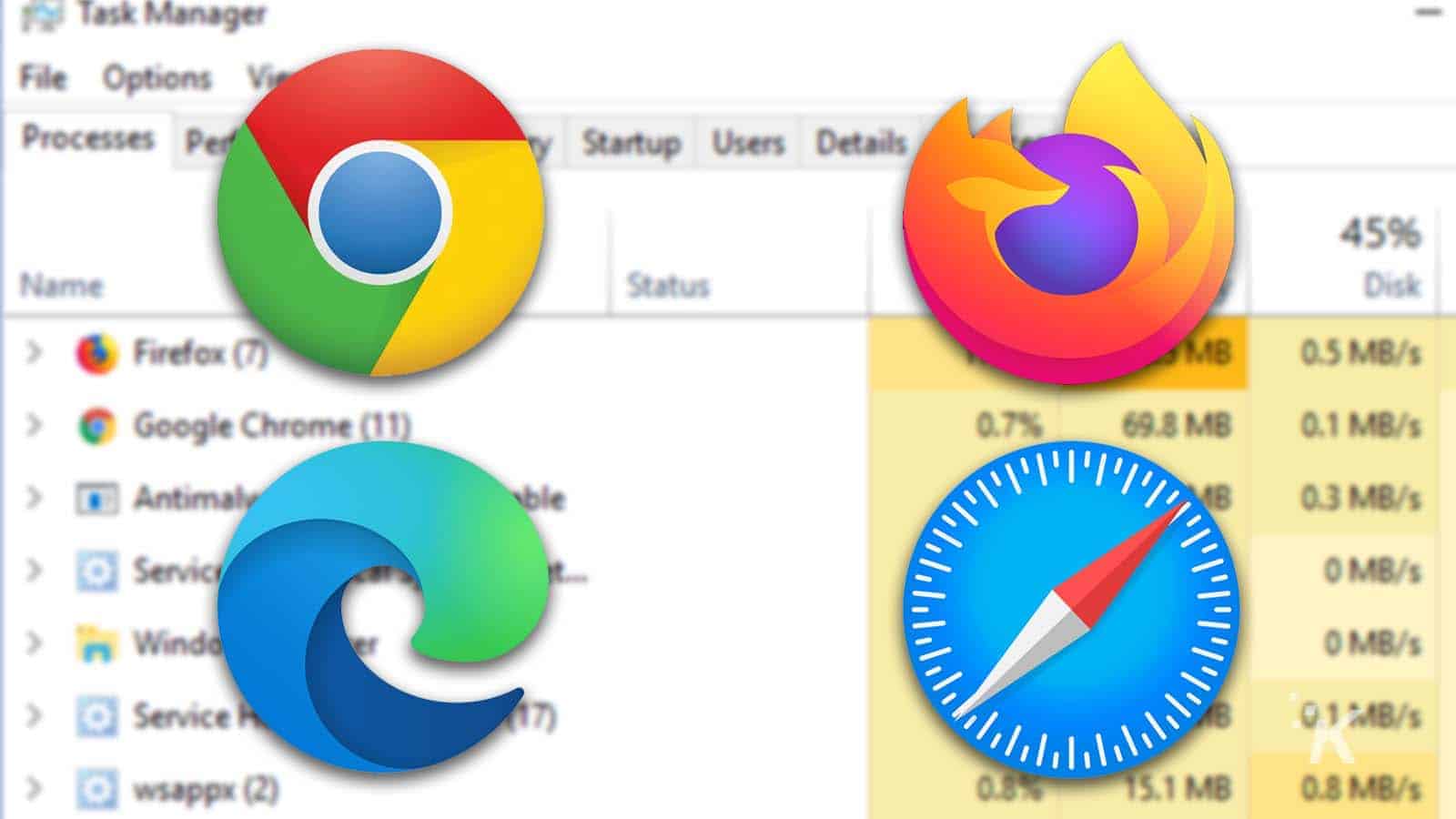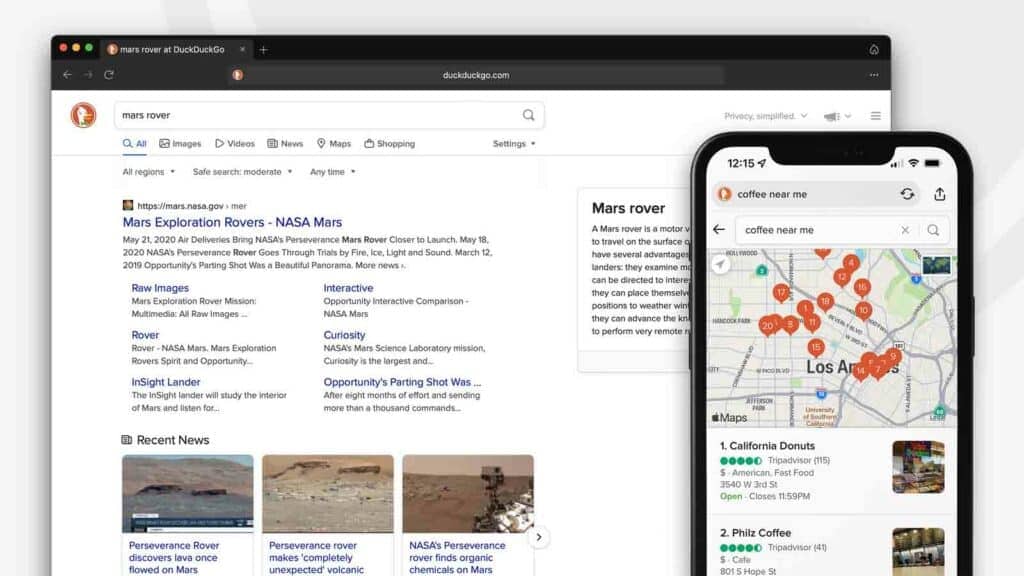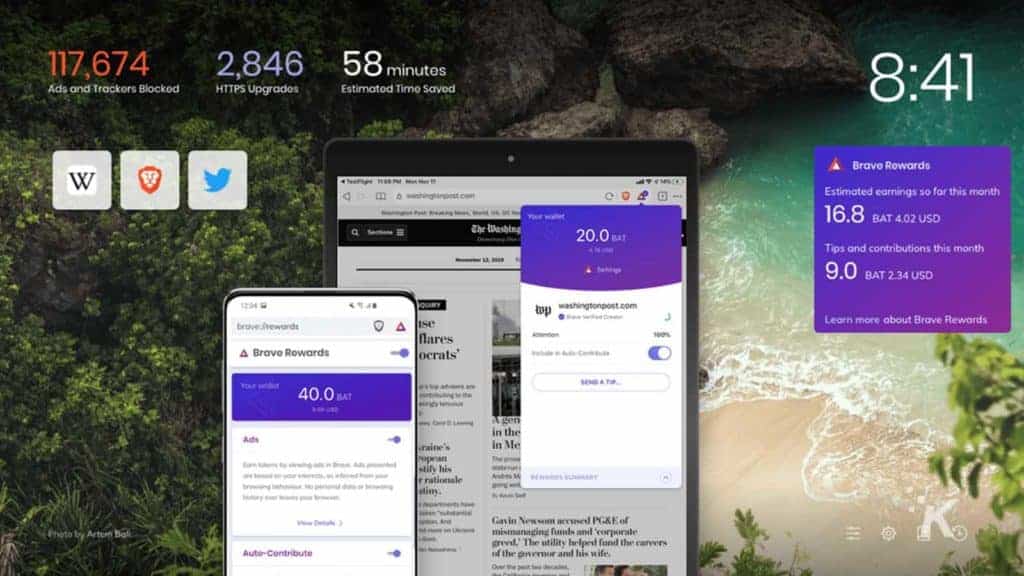Internet
Popular web browsers are leaking your personal data – these private browsers put an end to that
Web browsers collect a massive amount of our web history data. These options can help with that.

Just a heads up, if you buy something through our links, we may get a small share of the sale. It’s one of the ways we keep the lights on here. Click here for more.
Web tracking has become more and more prevalent and some users are looking for a way to prevent this type of tracking. It’s no secret that options like Google Chrome go out of their way to track you and understand your browsing history. Thankfully, there are a few options.
Everybody uses web browsers. Whether you are on your phone or in the office on a computer, we use web browsers almost constantly to browse the internet. However, the biggest web browsers out there are keeping track of a ridiculous amount of our personal information in order to send us targeted advertisements. The large names in the web browser game have made a business model out of selling our browser tracking information to third-party advertisers.
Most of us are familiar with the major web browsers. If you are on a Windows device, you’ve likely used Microsoft Edge. Apple users are familiar with Safari, and almost everybody has used Google Chrome at some point.
We most likely use one of those browsers because they are familiar and they all handle the simple task of web browsing easily enough. However, these browsers collect an astonishing amount of data from users to sell to advertisers. So what are you supposed to do if you don’t want your browser history being tracked?
Here are a few browsers focused on privacy
Private browsers utilize a couple of principles to keep user privacy at the forefront. Firstly, all web browsing is done in private, or incognito (allegedly), mode, meaning once the session is over, there is no recorded history of what transpired during the session.
Additionally, the browsers attempt to block websites from activating tracking technologies that would gain information on the user. One thing that browsers are not capable of preventing is the tracking from your internet service provider. There is nothing built into these browsers that will stop your ISP from being able to see your history.
There are a few options when it comes to choosing a private internet browser. While they do generally offer the same features, there are some minor differences in the private browsers out there.
DuckDuckGo

The first option available is DuckDuckGo. DuckDuckGo is a mobile-only browser (Android and iOS) that utilizes its own search engine and prevents ad tracking. It resembles a traditional browser, having multiple tabs, but gives users the option to delete your current browsing session. You can also use a Chrome browser extension for DuckDuckGo, but if privacy is the name of the game, mobile is the way to go for this one.
Firefox Focus

Another private browsing option is Firefox Focus. This is another mobile-only browser (Android and iOS) that automatically deletes browser history once a session is completed, though there is an option to manually delete browser history while still surfing the web. Firefox Focus also automatically enables blockers for certain ad trackers online.
Brave

The last browser mentioned is Brave. Brave has a private browsing mode that can be turned on and off and also blocks ad trackers, maybe a little more forcefully. The Brave browser actually seemed to block most ads themselves, whereas the other two generally only blocked the ad tracker. Brave is more like a similar browser, with features often found in more popular browsers like bookmarks and favorites.
So that’s the skinny on private web browsers. Ad tracking is something that has been in question for a while now, and it seems that we are making a move away from that. Google recently announced that it would soon stop selling data to third parties, though there’s still no real timetable for when that will happen. In the meantime, try some of these browsers for a more private experience.
Have any thoughts on this? Let us know down below in the comments or carry the discussion over to our Twitter or Facebook.
Editors’ Recommendations:
- The new Chrome update is focused on loading faster and saving memory
- Mozilla Firefox now offers a new feature designed to fight trackers
- Google will stop selling ads based on users’ web browser history
- This browser extension blocks any website that uses services from Google, Amazon, and Facebook



























